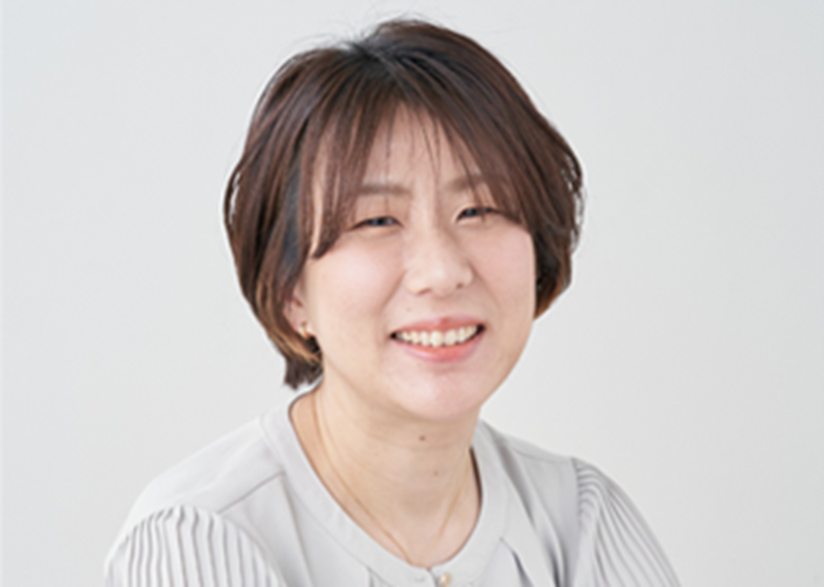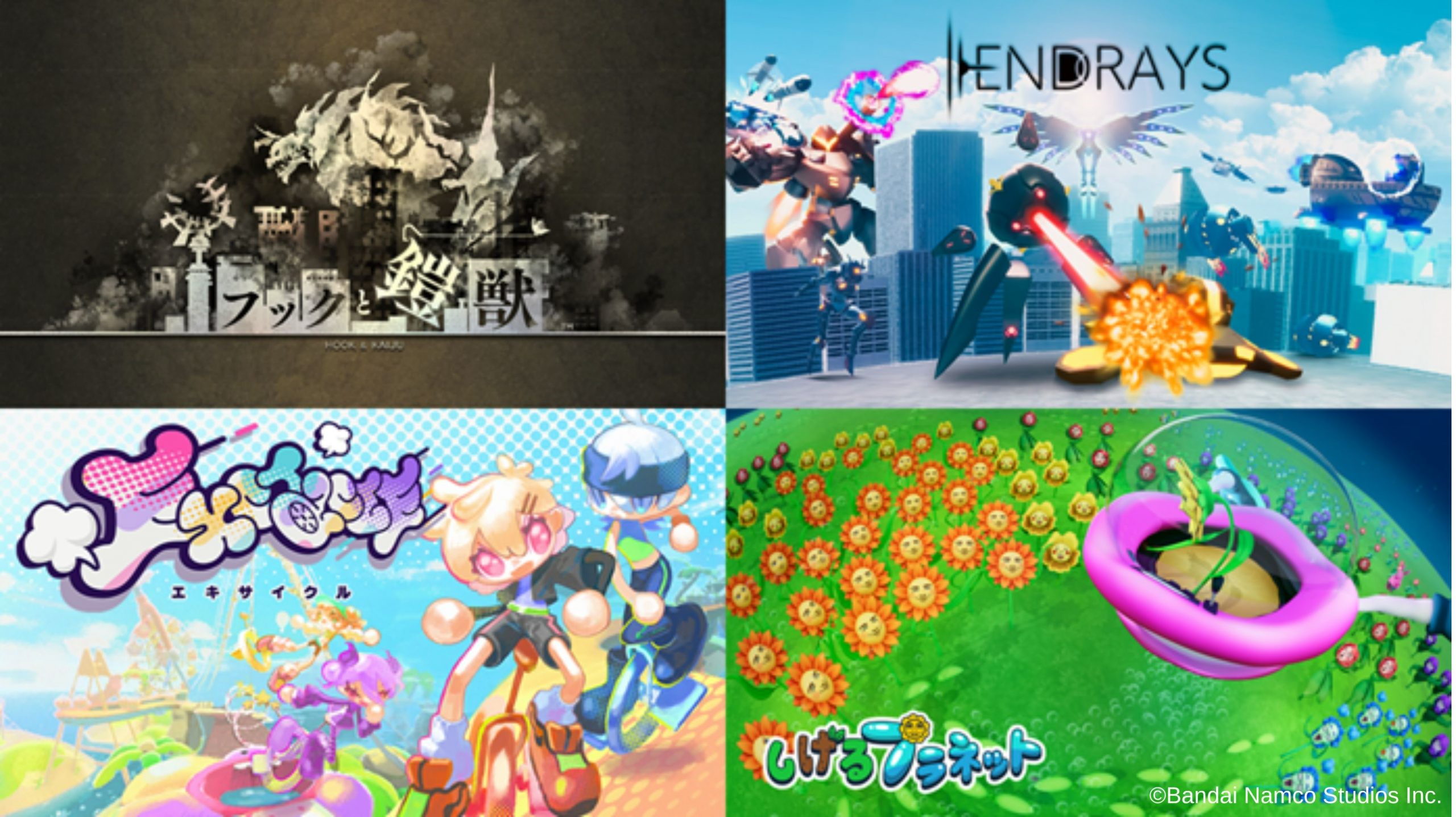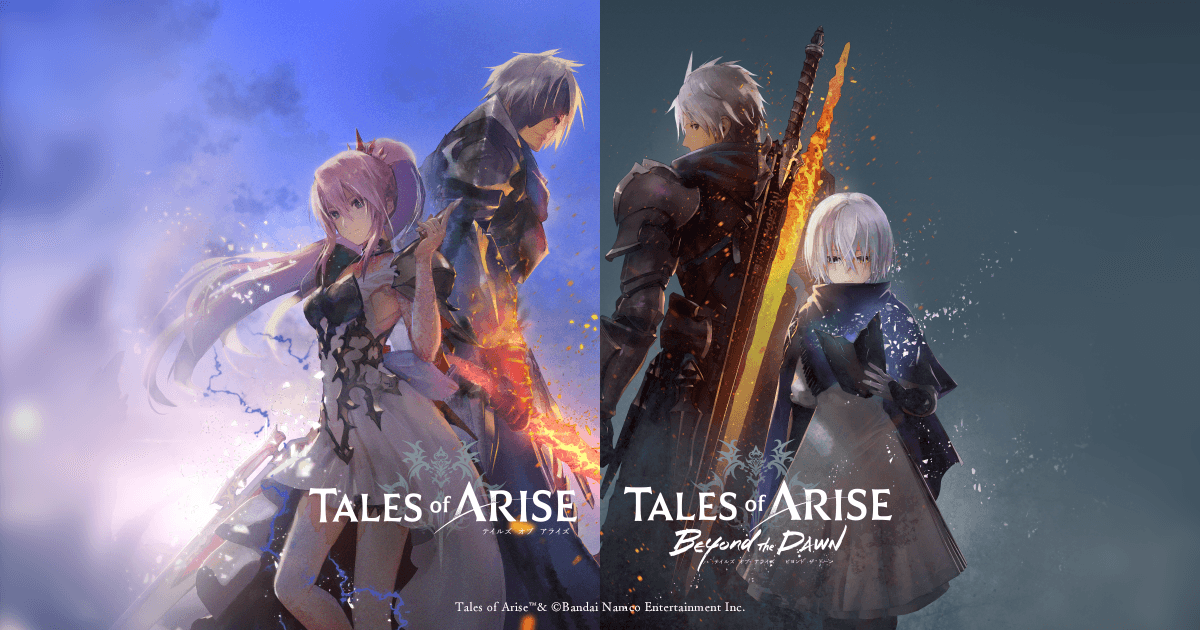Tales of Arise – Beyond the Dawn Project Manager and Producer Moeka Oshiyama

Project Manager and Producer
Moeka Oshiyama
— Please tell us about your current affiliation and what you’re working on now.
I joined Bandai Namco Games after graduating from university. It was right when the company name changed, so I was among the first new graduates to join Bandai Namco Games.
After joining the company, I worked across multiple projects. I was then invited to work on the IDOLM@STER series by the director in charge at the time and worked on the new titles in that series for a while.
And after that, I took part in starting up the new hire training project, GEMini. I was actually the one who came up with the name. (laughs)
From then on, someone from the Tales development team reached out to me and that’s how I came to work on Tales of Arise and Tales of Arise – Beyond the Dawn recently.
— Please tell me more about the conception of GEMini.
One day, out of the blue, my manager at the time said to me, “I want the new hire training program to make games and publish them under a dedicated Steam brand. You know what I want you to do, right?” It was so bizarre! (laughs)
Back then, we hadn’t been doing cross-discipline game development training for some years. Plus, BNS has never had an exclusive Steam brand and had no knowledge on building such a thing. I had no experience with it either, so I scrambled to do the preparations to make it happen somehow. In addition to this, I was also responsible for planning the training program for the Planner position as well, so I was running on a really tight schedule.
I truly believe that the contribution of the mentors during the training is very significant, and GEMini would not have been able to continue without the heads of each organization who worked hard to make it happen, as well as everyone else who helped and supported us in various ways. All I did was create a space for this collaboration… With that in mind, we ultimately did not release the product on Steam that year. It was challenging to keep everything on track and according to plan.
In hindsight, I think I managed to create a training program and I made full use of my previous experience in establishing, planning, executing, and coordinating projects as a Game Designer and Director, as well as with the cooperation of many people.
Now, we are able to present the titles developed by our new hires on Steam every year, and it was a great experience to build the foundations of this program.

— Could you tell us about some of the hardships you’ve faced or some memorable moments in your current work?
Working remotely has long since become mainstream, but the development and team building we were able to accomplish throughout the COVID-19 pandemic is still impressive to me in retrospect.
We had to shift to remote work during the final stages of development for Tales of Arise. Having everyone immediately switch without any preparation was not feasible, so we gradually increased the number of people working remotely by finding and solving problems, testing with a few people at a time
We were worried about whether those who were still commuting to the office would catch it, whether we’d catch it ourselves, and if we should just have everyone switch to working from home all at once. We managed to switch everyone over while having small fires to put out here and there, and even after that, there were many long team discussions to iron out some of the troubles that came along with the changes. I remember we went through a cycle of someone calming down people who started panicking about working from home.
The team, which was great at maintaining good communication throughout the development process, became sort of disjointed after the transition. We also did more team building alongside regular game development, such as how to support each other, how to communicate so that no one would be left out, and how to guarantee the final touches at the end of the development process. In any case, I think we managed to get through it by establishing a system that required us to keep in touch with each other, to check on the development progress, and to allow each person to voice their concerns.
The Tales of Arise team transitioned to remote work in the final stages of development, when relationships among team members had been established to some extent. On the other hand, the Beyond the Dawn team started out fully remote, which was a new experience for all of us on the management team, and we kind of just played it by ear.
We needed to talk transparently about the progress so that everyone could see how the team was moving, share even small weekly results through screenshots, and create opportunities for everyone to check the finished game screens and discuss them together. We went about teambuilding with the goal of creating a structure in which everyone could see what was happening, work towards the same goal, and be as involved in the project as possible.
Even if we are talking about the same pandemic and same problems with switching to remote work, the project, and its team’s circumstances, what was done, the insights gained, and the experience acquired will differ depending on the stage of development during which the pandemic fell upon us. This is especially due to game development being a process that takes a long time. Even after three years of the pandemic, there are still some “firsts” that we have trouble with, and that’s because the team/company is different now than what it was three years ago.

— Do you have a personal rule that you keep in mind?
I make an effort to clarify the goal and always be aware of it. I always worry if I’m managing to do so though… (laughs)
Everything, be it creating a game or managing a team, is a series of choices. I make sure to stay aware of the rationale for those choices, and whether they are ultimately made with the team’s goals and game concept in mind.
For this reason, it is also important to firmly establish the goal and concept in the beginning, which I feel can often be forgotten. At the same time, I try to also be aware of how much difference there is between the current state of development and what we’re aiming for.
I feel like I’m talking from the perspective of a project manager right now, but I think I had also kept these things in mind when I was a director. We can’t always do everything because it looked fun or because it would be good for the game if we did it. There will be no end to it, and I believe I made choices along the way. There is so much to think about and I’m always exhausted. (laughs)
— What is something you’re confident about?
It is hard to say that I am confident in a company full of people who are masters in their respective fields, but I try to use any means possible to convey this to others.
As is true now and when I was a game designer, in the end my job is to tell the team what I want to do and work with them to create it. I think the most important thing is to communicate what you want to do with the rest of the team.
Most of the time, I create something using PowerPoint or Excel, but it is a constant struggle to create something entertaining through these means and these rigid documents often fail to convey the nuances.
I didn’t do well in art class, scoring only 2 out of 5, but I spent a lot of time drawing pictures, planning storyboards, mocking up game screens, researching stylish designs and compiling reference materials, shooting and editing videos, drafting novels, even cosplayed and put on small plays, etc. I believe that coming up with different ways to communicate with the team and presentation audience is an irreplaceable aspect of this job.
I’m not a game designer these days, but rather on the management side, so I don’t get to do as many bizarre things as I used to. But the other day, I was able to create a sample website of the final product in order to explain an idea I had in my head.
At first, I was going to make a document, but I was worried that it would not get my message across, and then I remembered that I used to make my own mockups. So, I made one quickly. With that being said, and others are aware of this as well – it is hard for me to say that I am confident, since I have been working with more rigid documents lately. Even so, I try to emphasize conveying my message such as by carefully selecting fonts, even if the document isn’t something people would find fun.
— Lastly, please tell us your personal mantra!
“Live a pure, fun, and interesting life.”
It’s been my mantra since elementary school. I think I saw it in a manga or something, but I strive to live so that I can say I had a fun and interesting life.
Naturally, there are things in life that are unpleasant and a pain to deal with, but I try to find something enjoyable in the midst of it. I try to make it fun for myself, and I always try to switch it up and do something I like, so that I never have a bad day.
When I first joined the company, my mentor always said, “if you want to make something fun, you have to have fun doing it.” I think that is a pretty important thing to keep in mind for game developers. If you go through work while having pent-up worries or uncertainties, what you make eventually ends up less than satisfactory. So, I think I should enjoy the work while I’m doing it.
— Thank you very much!
Read more interviews on Tales of Arise!
Making of Tales of Arise (Part 1)
Making of Tales of Arise (Part 2)
Tales of Arise™ & ©Bandai Namco Entertainment Inc.





